
ancestral: remains to be seen
Double Dutch 8, The National Art Gallery of The Bahamas, 2021
The National Art Gallery of The Bahamas’ “Double Dutch” series of exhibitions “brings together artists from the Caribbean region and Black diaspora to produce provocative bodies of work through collaboration and exchange. The project works against ideas of nationalism and the insularity of our creative environs by creating an experimental hub to explore regional and diasporic culture, our creative acumen and sensibilities.”
For this 8th iteration of the Double Dutch, Tamika Galanis and Rodell Warner investigate what archival photography means in the Caribbean space. Presented with the spirits of ancestors and silk-cotton trees who have born witness to the shifting physical and social landscapes in this space, Galanis and Warner give us room to question how the colonially manufactured view of our past as a region has shaped the ways in which we know – or, perhaps more importantly, how we don’t know – ourselves in the contemporary.

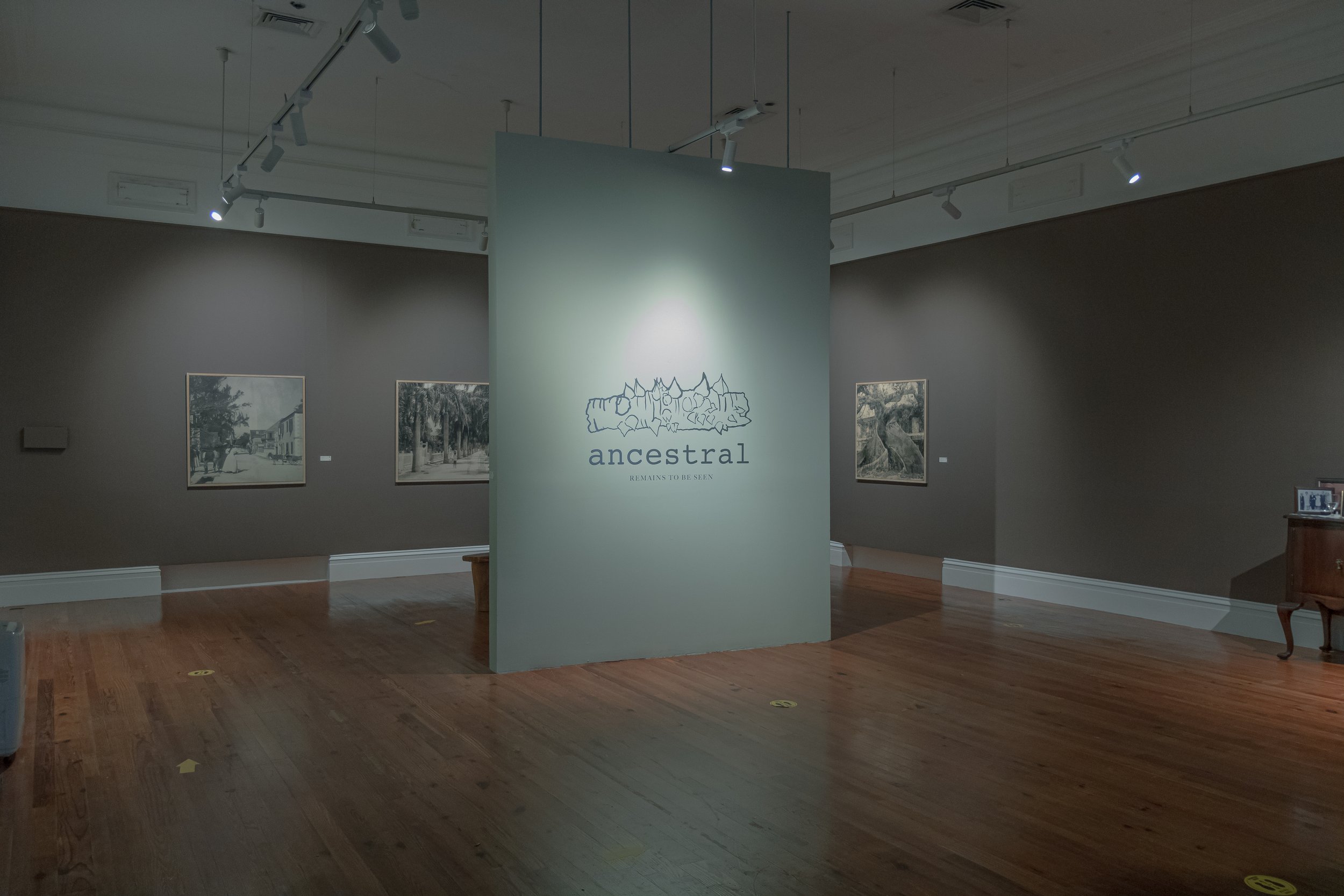




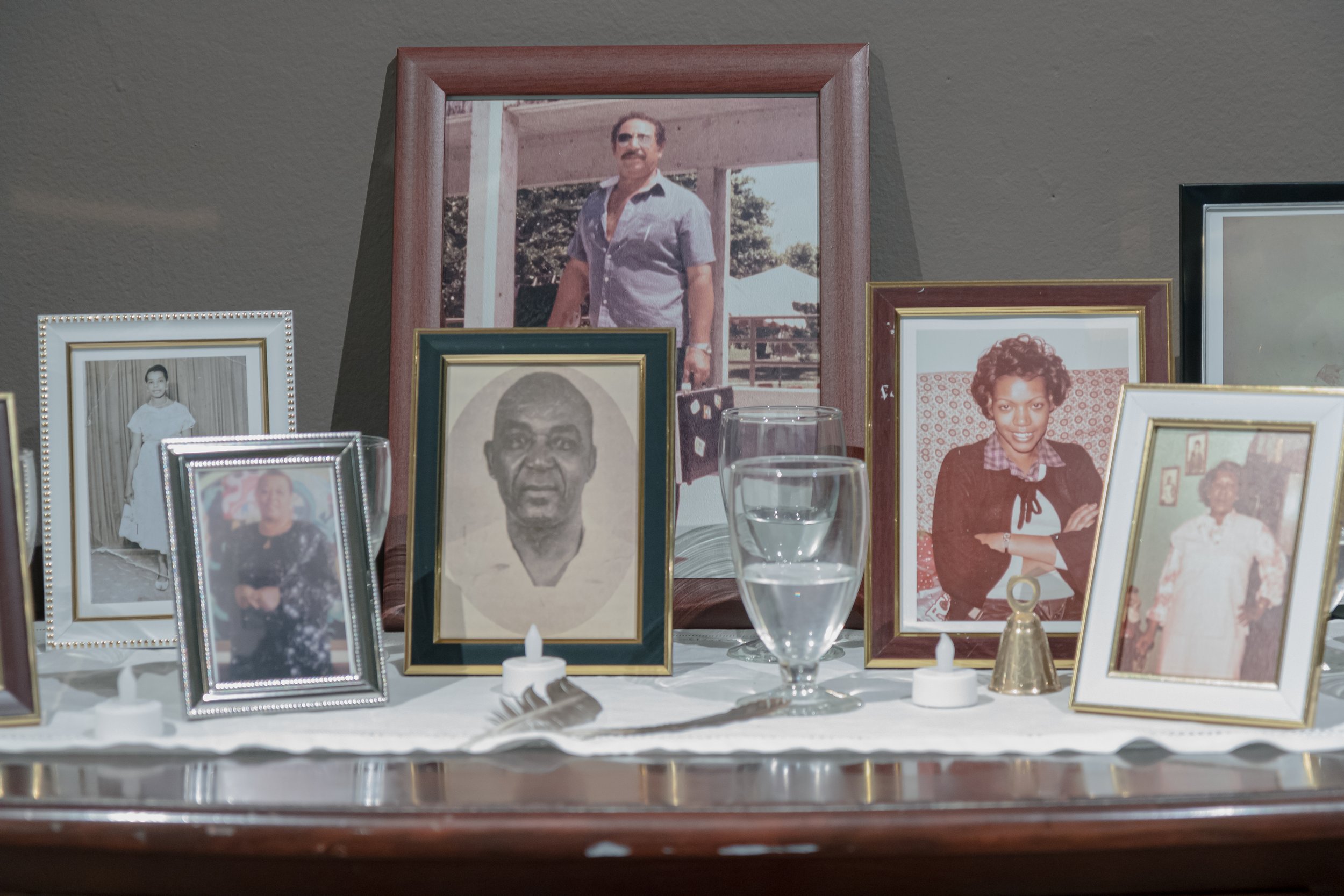





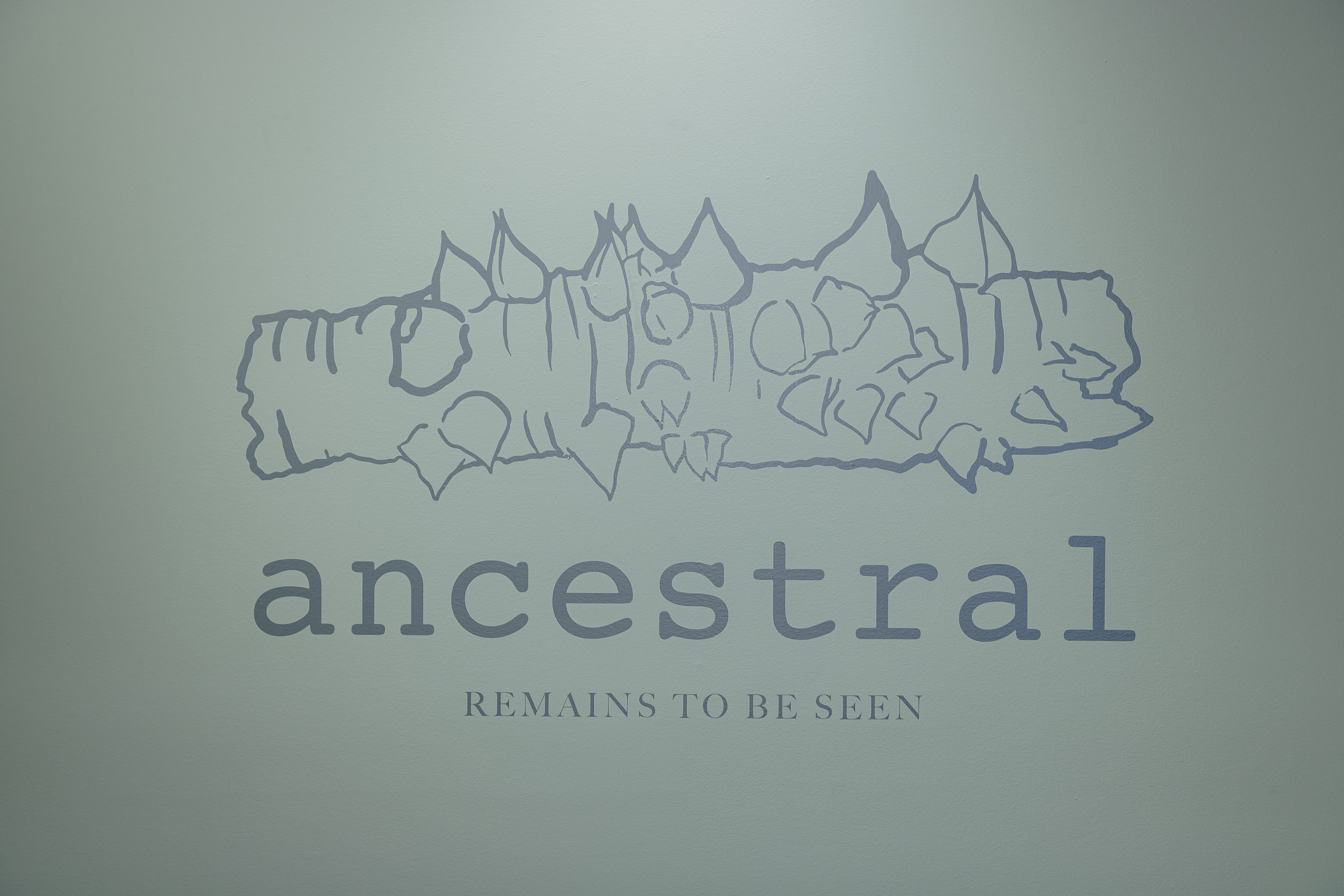
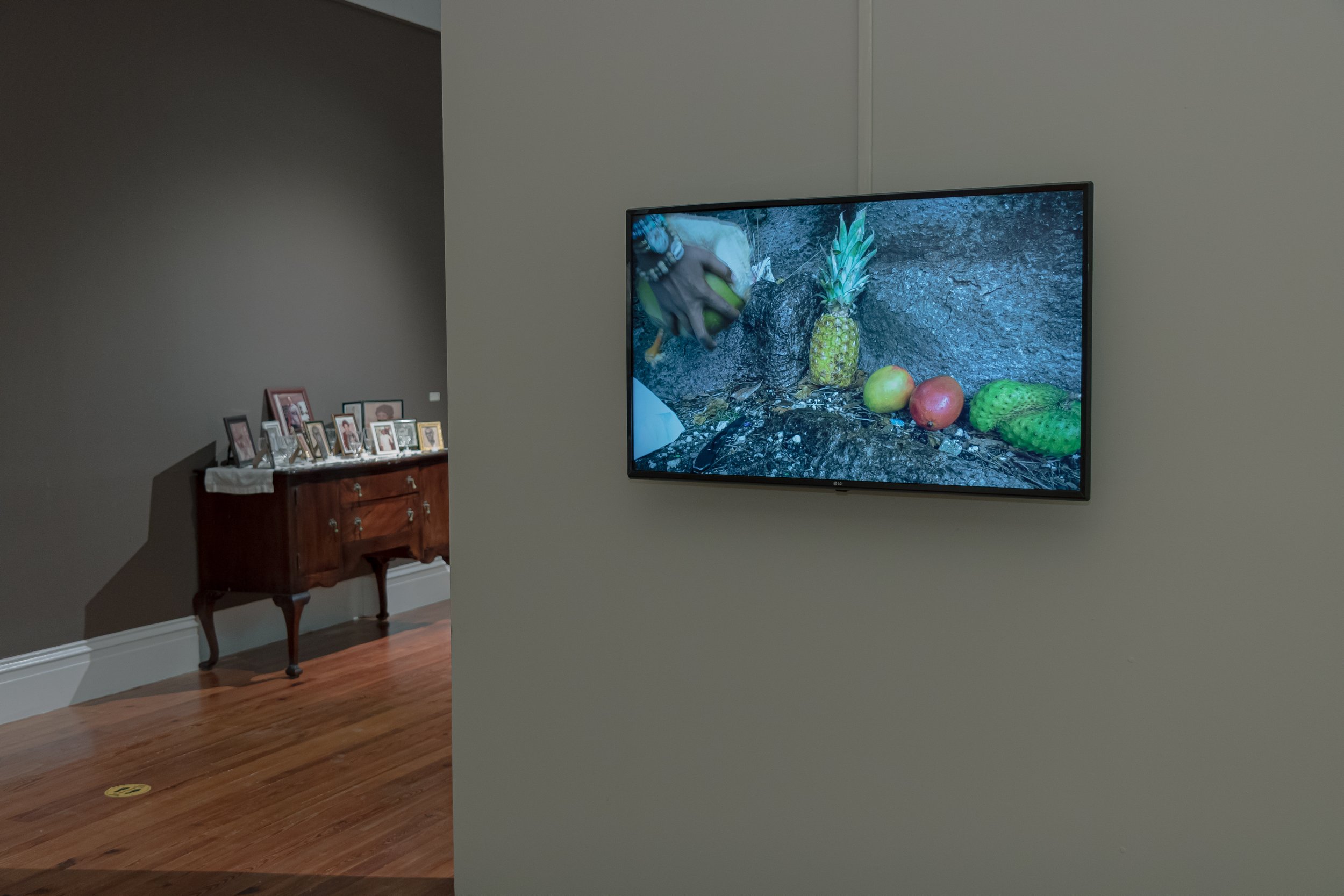

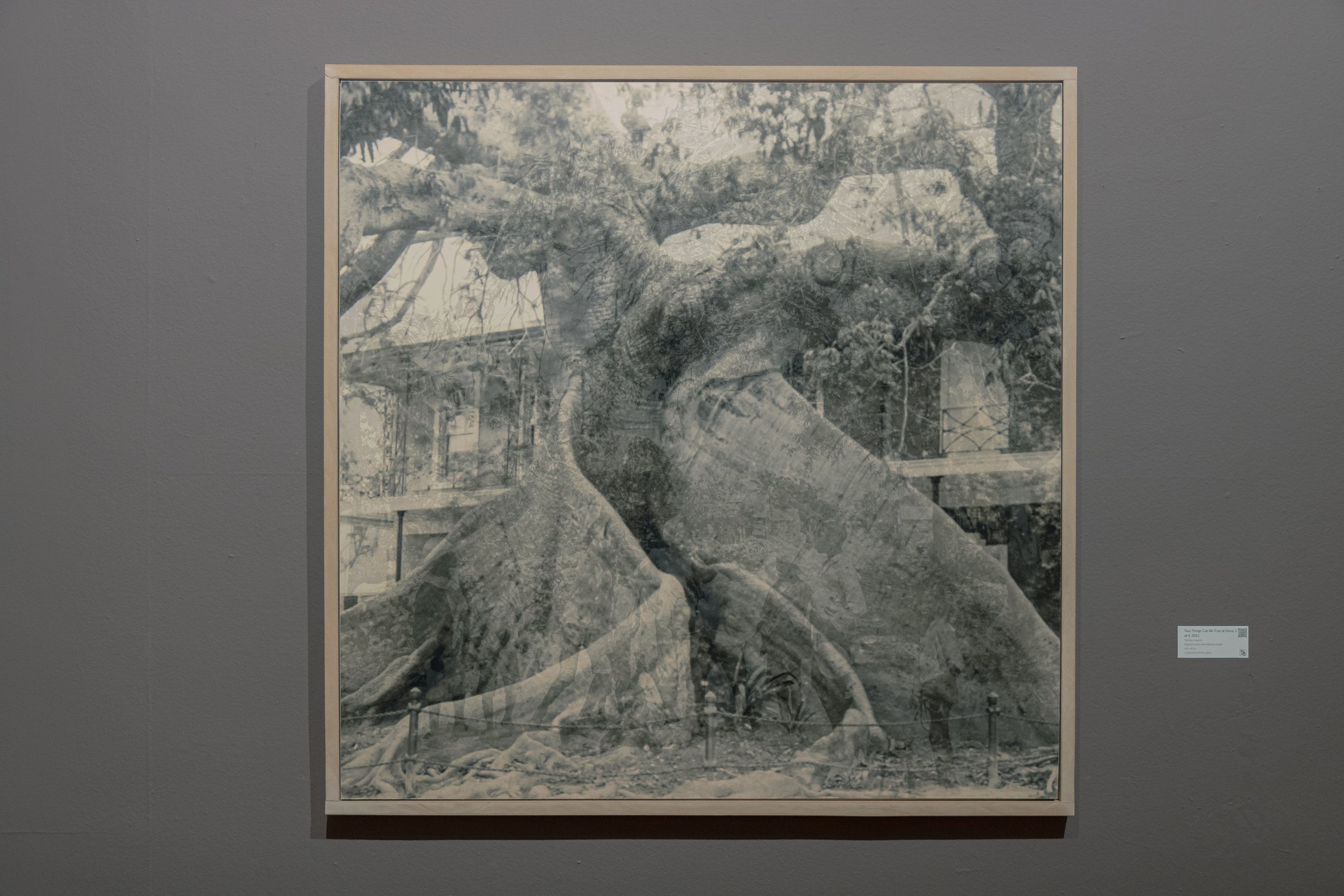

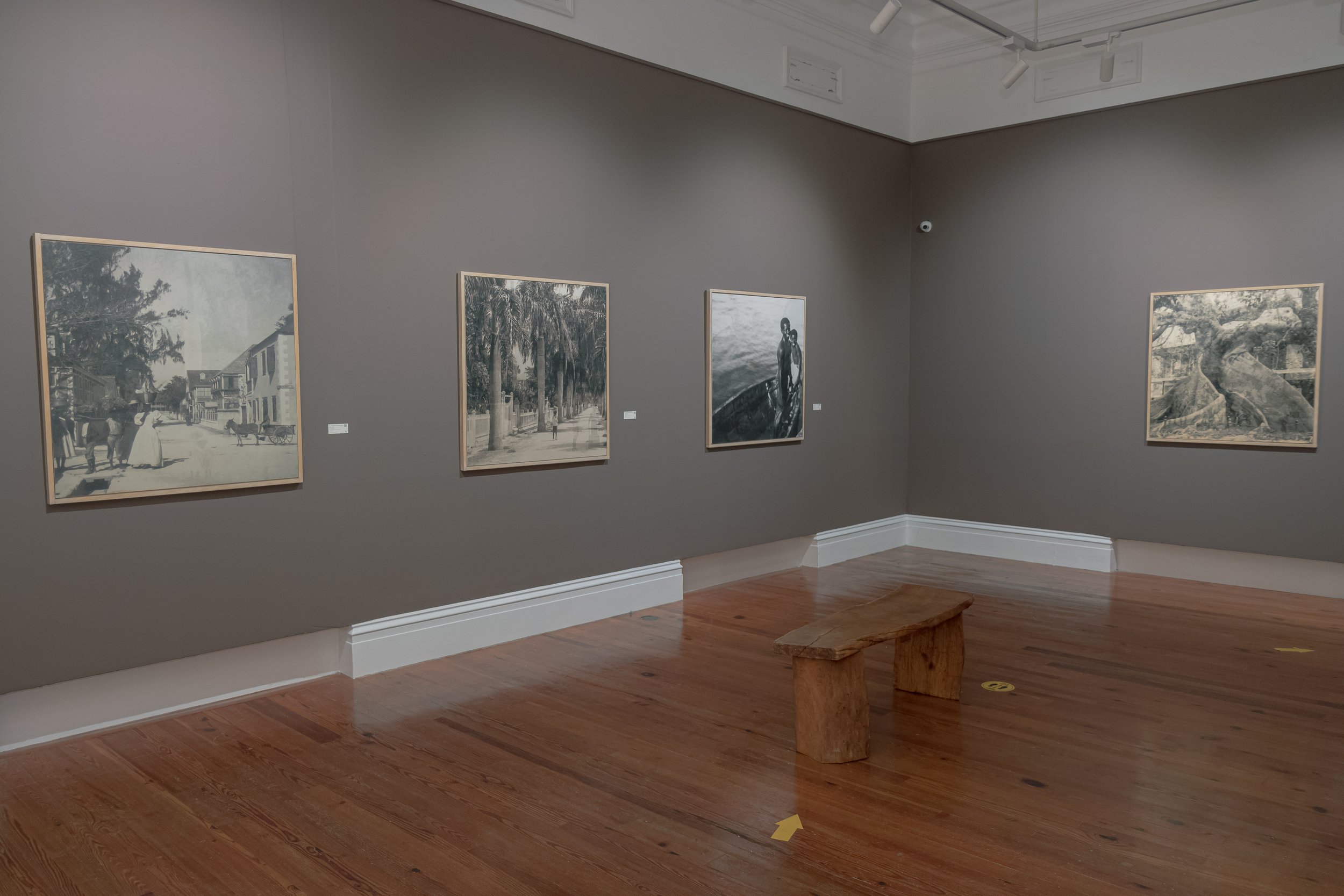
…
-
Co-Curator: Richardo Barrett, credited for his excellent exhibition design and unwavering sensitivity and care.
Artists included: Tamika Galanis & Rodell Warner
Dates: November 2021 through March 2022
Location: The National Art Gallery of The Bahamas
-
ancestral: remains to be seen.
Throughout Caribbean, South American, and West African histories, the Silk Cotton tree (also known as Ceiba and Kapok) has stood sentinel over our pains and joys throughout centuries and has also served as a space of spiritual significance. Both artists dig deep into the roots of what it means to stare into the faces of those long gone - what they could have taught us, and what they might still be able to teach us through dreams.
What does it mean to pay deference to ancestors and spirits unfamiliar and uncanny to us? Can these ancient trees hold spirits, and what memories might they have to share with us? Galanis and Warner beg that we consider the mysteries of what has been witnessed throughout the lifetimes of these rooted watchtowers. Part mystery, part history, the notion of watchers and witnesses reigns supreme here - and what do these stories of those long gone have to tell us? What wisdom might we glean from spirits both cellulose and cellular in the current moment?
Our feelings around ancestry - and all its difficulties - paired with a lack of thorough record-keeping, make Caribbean archives all the more complex. Ancestry in postcolonial spaces can be a point of contention and pain as much as one of pride and identity. Galanis and Warner give us an alternative of sorts. In looking to the spirits of our Caribbean ancestors in photographs staring back at us, and the spirits of sacred Silk Cotton trees offer up the idea of an intuitive archive based on collective memory. The artists give us room to question how the colonially manufactured view of our past (particularly as a region united under difficult histories) has shaped the ways in which we know - or, perhaps more importantly, don't know - ourselves in the Caribbean contemporary.
It can be argued that archives in the Caribbean tell the story of visionaries and viewers, of the attestors and the observers. Both Galanis and Warner bridge seas and waterways to sink into the roots of shared ancestry and what reveals our larger story of interpersonal relations and our troubled relationship to the landscape. Be it spirits, history or the arcane space between - the story of our souls has long been tied to the land we reside on, and this is part of that story.
-
Tamika Galanis is a documentarian and multimedia visual artist. A Bahamian native, Tamika’s work examines the complexities of living in a place shrouded in tourism’s ideal during the age of climate concerns. Emphasizing the importance of Bahamian cultural identity for cultural preservation, Tamika documents aspects of Bahamian life not curated for tourist consumption to intervene in the historical archive. This work counters the widely held paradisiacal view of the Caribbean, the origins of which arose post-emancipation through a controlled, systematic visual framing and commodification of the tropics. Tamika’s photography-based practice includes traditional documentary work and new media abstractions of written, oral and archival histories. Tamika earned a Master of Fine Arts in Experimental and Documentary Arts from Duke University.
Rodell Warner is a Trinidadian artist working primarily in new media and photography. His works have been exhibited at The Whitney Museum of American Art in the 2016 Dreamlands exhibition as part of the collective video project Ways of Something, at The National Gallery of Jamaica in the 2016 exhibition Digital, and at the 10th Berlin Biennale in 2018 in I’m Not Who You Think I’m Not #14. Rodell is a recipient of the 2011 Commonwealth Connections International Arts Residency and the 2014 summer residency at NLS Kingston. Warner was commissioned in 2017 to create the Davidoff Art Edition, a series of five artworks printed onto a limited edition of five thousand boxes of luxury cigars. Additionally, he presented and sold at Art Basel in Hong Kong, Miami and Basel. Rodell lives and works between Port of Spain in Trinidad, Kingston in Jamaica, and Austin, Texas, in the US.
-
By Holly Bynoe, former Chief Curator of the NAGB
The “Double Dutch” series supports the concept of bringing together local and regional artists, irrespective of where they are currently residing, to work with a group of ideas personal, political and otherwise crucial to the development of a contemporary Bahamian identity. These artists and collectives are often divided linguistically and geographically but are united by common historical, economic or practice-based conditions. For this reason, the National Art Gallery of The Bahamas (NAGB) pilot project attempts to create and maintain ties throughout the Caribbean and its more extensive diaspora
-
Artforum Review by curator Miguel Lopez for the April 2022 edition.
“A repository of memories: Bahamian & Trinidadian artists investigate another way to interpret the archive in ‘Double Dutch 8’” by Erica Wells Cox for EWNews Bahamas

